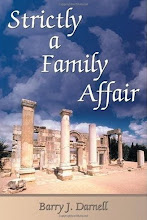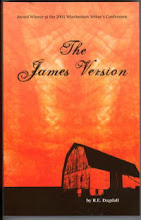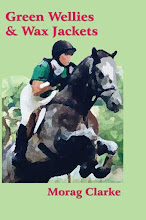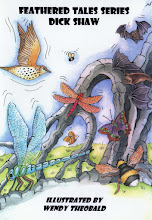by WILLIAM YEOMAN, The West AustralianAugust 7, 2012, 12:23 pm
On the night probation officer Ruth Dugdall gave birth to her son, she began another kind of labour: writing a novel about a child killer. "I don't know how you could have written that, having just had a baby," a friend said to Dugdall after reading the book, The Woman Before Me.
"I don't think I could have written it if I hadn't just had a baby," she replied.
The Woman Before Me isn't a comfortable read. But it's a gripping one, rendered in taut, lucid prose.
Rose Wilks, the unreliable first-person narrator, is due for parole after spending five years in prison for the manslaughter of her friend Emma Hatcher's child.
Probation officer Cate Atkinson has been assigned to the case, and as Rose's story unfolds, Cate becomes increasingly troubled by what she sees as Rose's manipulative nature and lack of remorse.
But the truth, when it comes out, is far more troubling and shocking than Cate - or the reader - could ever have imagined.
When The Woman Before Me won the 2005 CWA Debut Dagger, Dugdall, who had studied literature at university and attended night classes in creative writing as an adult, decided to quit her job as a probation officer at a maximum security prison to devote herself to writing.
The novel, Dugdall's second, was subsequently published in 2010 by Legend Press after winning the 2009 Luke Bitmead Bursary, and in Australia this year by Text Publishing. She is working on her fifth book.
"I was never going to write a comedy," says Dugdall over the phone from Felixstowe, Suffolk, where she lives with her husband and two children. "I write about the things I'm afraid of. And what frightened me most then was having this enormous responsibility for this little being and damaging it if I get that wrong."
Dugdall remembers being tired and holding a crying baby and imagining how it might feel for somebody to lose their temper and "go over the line".
"Not that I ever could go over that line," she says. "But some people do, and I was allowing myself to explore that. It's a story as old as the hills: as a child you're more vulnerable to abuse by your parents than anyone else."
It was a story, says Dugdall, which she heard repeatedly in the course of her work as a probation officer dealing with people charged with crimes such as rape and murder, "people being abused by the first person who should have been giving them love".
And stalkers. "When I started the book I had just finished working with prisoners who had stalked former partners," she says. "So it was all still really present for me. And I had this new baby and I was very emotional and couldn't sleep. I just started writing.
"All the stuff that comes with new motherhood is there. All the stuff about prison - it was cathartic for me, I was getting it out of my system. That's why it's such an emotional read. And that's why I couldn't write that book now. At that moment, it was the only book I could have written."
Emotion, so important in the subjective realm of literature, can often get in the way of making a rational judgment in the real world. But here too, Dugdall allowed herself to be guided by her feelings.
"The probation world as a profession is fairly small and dedicated and you have a certain amount of freedom," says Dugdall. "So I learned to trust my feelings - not to block them but to work with them."
She remembers working with one particularly violent offender and being terrified. "I had this kind of spine-tingling 'You terrify me, you're actually really dangerous' sensation," she says. When she admitted her reaction to a police officer during a serious offender meeting, he was "disgusted".
"You shouldn't let him see that," the officer said. "I think you're missing the point," Dugdall replied. "If I feel like this after 10 years as a probation officer there's something there and I'm not going to ignore it."
Dugdall says it was a total contrast in working styles but one that always worked for her in "getting out of situations before somebody hit you".
Paradoxically, it was with her prison colleagues that she had to put on a mask of sorts. "There was a lot of institutional bullying and there were times when I was in conflict with other staff over how they were treating people," Dugdall says.
"It's tough to deal with that, especially when you're in an institution that isn't your territory and you're isolated. The only way you can deal with it is putting on your suit in the same way you'd put on armour and say to yourself 'I just have to do this job because it's the right thing to do'."















































